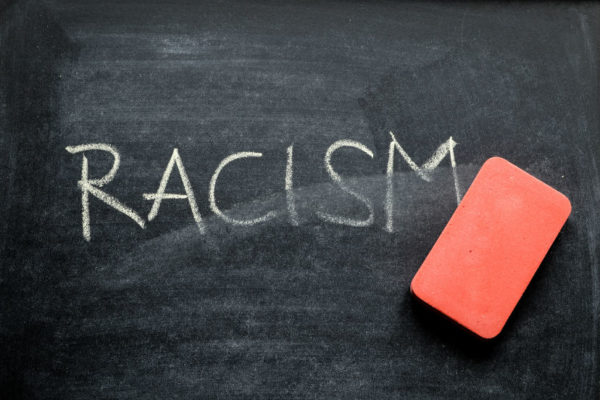In an uncharacteristically swift move by law enforcement, four Minneapolis police officers were fired for the death of an unarmed African American man, 46-year-old George Floyd. Video footage showing a white officer with his knee on the neck of a moaning and eventually motionless Floyd was widely circulated. Predictably, protests and demands for justice soon followed.
In the video Floyd can be heard yelling “Please, please. I can’t breathe,” words that are eerily reminiscent of the 2014 choke hold death of Eric Garner at the hands of the New York Police Department.
The sobering reality is that on any given day, for any given reason, black people in this country will be killed, often with impunity, for no other apparent reason than the fact that we are black.
There is nowhere that law-abiding black people can feel safe. And if you think you are safe in your home, think again.
Just two months ago Breonna Taylor, a 26-year-old African American emergency medical technician, was shot eight times by Louisville Metro Police Department officers after forcing their way into her apartment on a “no-knock” warrant.
Last year, 28-year-old Atatiana Jefferson was fatally shot by a Fort Worth police officer in her home after a neighbor called stating that Jefferson’s front door was open.
Then there was 26-year-old Botham Jean, who was killed in his apartment by an off-duty Dallas police officer who mistakenly entered his apartment.
Black people also have to worry about vigilante extrajudicial killings by “concerned citizens.” Enter 25-year-old Ahmaud Arbery, who made headlines after being fatally shot in February by a white man and his son, with apparent assistance by another concerned citizen, under the pretense of pursuing a citizen’s arrest.
Some may think five deaths of unarmed black people by police officers during the past 19 months, though tragic, does not make a trend. But what those people do not understand is each highly publicized killing of an unarmed black person feels like a personal assault on your humanity. You begin to imagine the unimaginable, this happening to you or someone you love.
This reality was powerfully demonstrated in an episode of the sitcom “Black-ish,” in which the family was processing the death of a black person who had been characterized as “no angel.” An emotional discussion familiar to many black families took place as the adults struggled with the possibility of their children being subjected to a senseless random killing.
The women tried to reassure the children that this would never happen to them because they would be polite and obedient, thus ensuring they would be able to have their day in court. However, the father and grandfather respond emotionally by pointing out instances of when black people died while in custody of the police.
Black people have no margin of error with behavior. We have to literally be perfect and make no mistakes, because each mistake we make can become a justification to shoot. Even being perfect is no assurance that we will not be targeted. Engaging in alleged unlawful or “suspicious” behavior should not be a death sentence. Black people are not allowed to simply be human.
It seems many people have become desensitized to the spectacle of black death. After all, how many times have we heard this story? Amadou Diallo. Oscar Grant. Trayvon Martin. Michael Brown. Tamir Rice. Philando Castile. Stephon Clark. Pamela Turner. Korryn Gaines. Yvette Smith. Miriam Carey. Shelly Frey. And the list goes on and on and on.
With every highly publicized instance of a brutal police encounter or senseless death at the hands of a police officer or a concerned citizen, black people experience a type of vicarious psychological trauma. Psychologists are beginning to recognize these experiences of racism as traumatic stressors, similar to large-scale violence or sexual assault.
These senseless killings of unarmed black people reveal one enduring truth that is self-evident: All people may be created equal, but we are not all treated equally.
Kevin Cokley is the Oscar and Anne Mauzy Regents Professor of Educational Research and Development and director of the Institute for Urban Policy Research and Analysis at The University of Texas at Austin. He is also a fellow of the UT System Academy of Distinguished Teachers.
A version of this op-ed appeared in The Hill.




